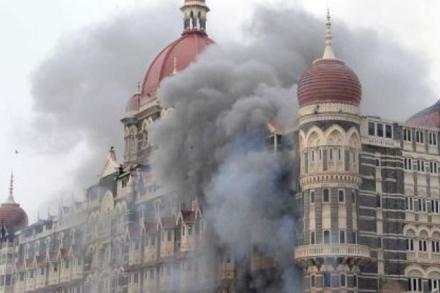
Pak claims 26/11 terrorist Tahawwur Rana is Canadian, not Pakistani
The 26/11 Mumbai terror attacks, which shook the world in 2008, left a trail of destruction and loss of innocent lives. The attacks, planned and executed by Pakistan-based Lashkar-e-Taiba (LeT) and its operatives, were one of the deadliest terrorist attacks in recent history. One of the key accused in the case is Tahawwur Rana, a Canadian citizen who has been wanted by India for his alleged involvement in the attacks. Recently, Pakistan’s Foreign Office spokesperson Shafqat Ali Khan made headlines when he claimed that Tahawwur Rana is a Canadian national and not a Pakistani citizen.
The clarification comes ahead of Rana’s potential extradition to India, where he would face trial for his alleged role in the 26/11 attacks. Rana, a businessman with ties to the LeT, was arrested in the United States in 2009 and has been in custody ever since. India has been seeking his extradition for years, but it has been a slow and complicated process.
According to reports, Rana’s Pakistani documents had expired over two decades ago, and he had not renewed them. This, Pakistan claims, is evidence that he is not a Pakistani citizen and has no connection to the country. The statement from Pakistan’s Foreign Office spokesperson has raised questions about the nature of Rana’s ties to the country and whether he was indeed involved in the 26/11 attacks.
The 26/11 attacks were a coordinated series of attacks carried out by 10 LeT terrorists on multiple targets in Mumbai, including the Taj Mahal Hotel, the Oberoi Hotel, and the Chhatrapati Shivaji Terminus railway station. The attacks left 166 people dead and over 300 injured. The only terrorist to be captured alive during the attacks was Ajmal Kasab, a Pakistani citizen who was later convicted and executed in India.
The role of Pakistan-based groups like LeT in planning and executing the 26/11 attacks has been well-documented. The group’s founder, Hafiz Saeed, is a known terrorist and is currently under house arrest in Pakistan. Saeed has been accused of providing financial and logistical support to the LeT and its operatives.
India has long accused Pakistan of providing safe haven to terrorist groups like LeT and harboring terrorists like Saeed. The 26/11 attacks were seen as a major escalation of tensions between the two countries, and India has been seeking greater cooperation from Pakistan to bring the perpetrators to justice.
Tahawwur Rana’s case is particularly significant because of his alleged role in the 26/11 attacks. Rana, who was a friend of David Headley, a US citizen of Pakistani origin who was involved in the attacks, is accused of providing material support to the LeT and helping Headley to plan the attacks.
Headley, who was also a key witness in the trial of David Coleman Headley, his wife Shazia, and their accomplices, had confessed to his involvement in the 26/11 attacks. He had also testified against Rana, saying that Rana had helped him to plan the attacks and had provided him with information about the targets in Mumbai.
Rana’s extradition to India would be a major victory for Indian authorities, who have been seeking to bring the perpetrators of the 26/11 attacks to justice for years. However, the process has been complicated by Pakistan’s reluctance to cooperate with India on the issue.
Pakistan’s claim that Rana is a Canadian national and not a Pakistani citizen has raised questions about the nature of his ties to the country. While Pakistan claims that Rana’s documents had expired over two decades ago, India has accused Pakistan of providing fake documents to Rana and other terrorists.
The controversy surrounding Rana’s nationality is just the latest twist in the long and complicated saga of the 26/11 attacks. As India and Pakistan continue to spar over the issue, the families of the victims of the attacks are left waiting for justice.
Sources:






